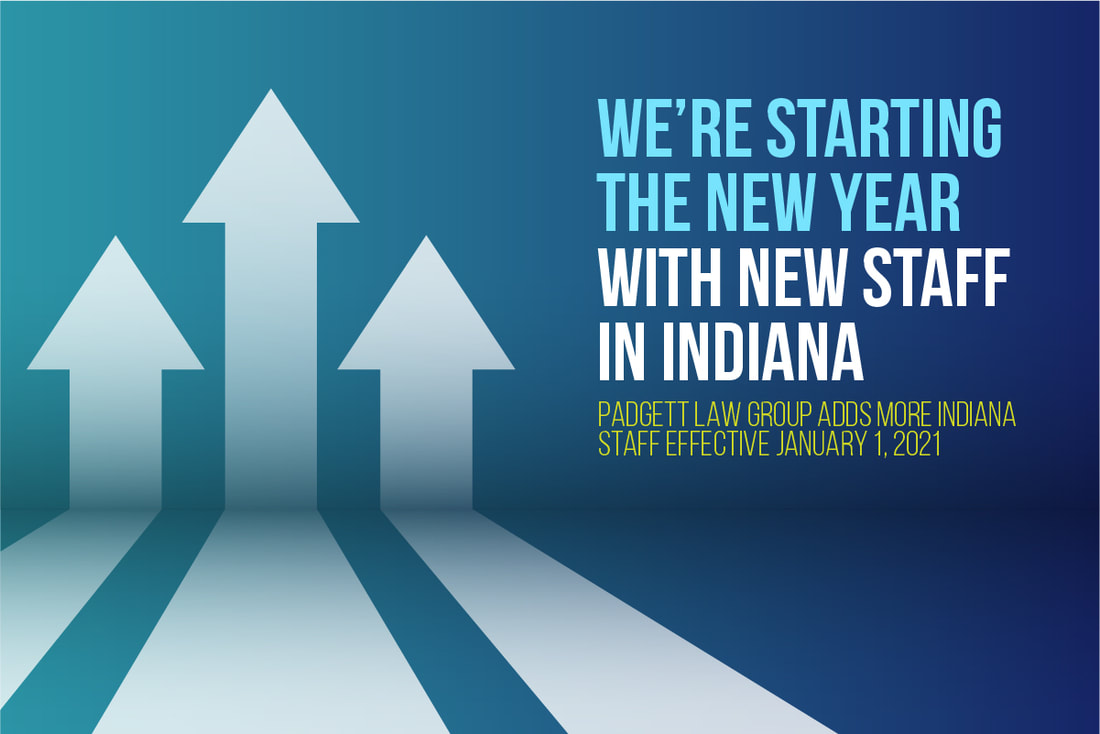PLG NEWSNews + updates + recent press
|
Archives
June 2024
May 2024
March 2024
February 2024
August 2023
May 2023
April 2023
January 2023
November 2022
September 2022
August 2022
June 2022
April 2022
March 2022
September 2021
August 2021
July 2021
June 2021
May 2021
April 2021
March 2021
February 2021
January 2021
December 2020
October 2020
September 2020
August 2020
July 2020
June 2020
May 2020
April 2020
March 2020
February 2020
January 2020
December 2019
November 2019
October 2019
August 2019
June 2019
May 2019
April 2019
February 2019
January 2019
November 2018
October 2018
September 2018
August 2018
July 2018
June 2018
May 2018
March 2018
January 2018
December 2017
October 2017
September 2017
August 2017
July 2017
|
On December 22, 2020, Congress passed the Consolidated Appropriations Act, 2021 (“CAA”), which was signed into law by the President on December 27, 2020. Aside from providing stimulus payments, the CAA also amends some provisions of the bankruptcy code, particularly related to Chapter 13. Much like with the Cares Act, it will be too soon to tell the Court’s practical application. However, the below provides a summary on what is affected and items that PLG will continue to keep its pulse on. Early Discharge Under §1328(i) Subsection (i) was added to §1328 which provides in part that the court may grant a discharge to a debtor if:
Perhaps the most confusing and questionable aspect is a reading of numbers 2 and 3 together. This means that a debtor, who has a plan providing for cure & pay and who has entered into a loan modification agreement or forbearance agreement (regardless of COVID-19) may receive a discharge having not completed payments under the plan. Interesting enough, there is no mention as to when the forbearance or loan modification agreement must have been entered into. It may be entirely possible for a debtor to obtain a loan modification prior to filing bankruptcy, then file a bankruptcy and propose a cure & pay plan and then receive a discharge. What also makes this provision unclear is that it defeats the entire purpose of §1322(b)(5). That section is intended to allow debtors to cure defaults on mortgages so that they come out of bankruptcy without arrears. If debtors are allowed to receive an early discharge and the debtors do not complete payments under the plan, then this may defeat the purpose of filing bankruptcy (aside from getting a discharge) since debtors are not able to the “fresh start” that the code provides for—at least in terms of their mortgage. On the other hand, this may be a good vehicle for a debtor who has a loan modification or forbearance agreement but has racked up a lot of unsecured debt. It should also be noted that this provision sunsets after one year. Forbearance Claims The CAA provides that an eligible creditor, which is defined as a servicer of a federally backed mortgage loan, may file a supplemental claim for the amount that was not received by an eligible creditor during the forbearance period. This is intended to allow a debtor to cure the forborne amount under the plan. The claim must include:
Section 502(b)(9) was also amended to clarify that a forbearance claim is deemed timely filed if the claim is filed before the date that is 120 days after the expiration of the forbearance period. Although it is not mandatory for this claim to be filed, it is recommended since a creditor may have to waive any amounts that are not accounted for via the filing of this supplemental claim. This usually comes about when responding to a notice of final cure or motion to deem current. This provision sunsets after one year. Plan Modifications §1329 was amended to ad subsection (e) which provides in part that after a creditor files a forbearance claim (described above), the debtor has 30 days to file a request to modify the plan to address the forbearance claim. In the event the debtor fails to do so, after notice, the court, on a motion of the court of a motion of the United States Trustee, the trustee, a bankruptcy administrator, or any party in interest, may request a modification of the plan to provide for the proof of claim. This means that a creditor, such as a mortgage servicer or lender, may request a modification of the plan to provide for the proof of claim addressing the forbearance amount. The creditor may (and should) request reimbursement for its fees in having to engage in this course of action. One of the questions yet to be determined is what occurs when a debtor defaults on the forbearance agreement? Will the courts require that the creditor modify the plan to account for the supplemental claim before seeking stay relief? Or will the creditor be allowed to move for relief without modifying the plan (assuming the debtor, trustee and no other party in interest requests a modification). This may vary amongst each jurisdiction. This provision sunsets after one year. Effective: Immediately upon the expiration of the moratorium (12/31) announce in ML 2020-27 for all FHA insured mortgages, except for FHA insured mortgages secured by vacant or abandoned properties. Applies to: Foreclosures and Evictions, except vacant and abandoned properties. Extended Until: February 28, 2021 Deadlines for First Legal Actions (important as different than usual): Deadlines for the first legal action and reasonable diligence timelines are extended by 120 days from the date of expiration of this moratorium for FHA insured Single Family mortgages, except for FHA insured mortgages secured by vacant or abandoned properties. Effective date: December 7, 2020 The changes outlined below will be implemented in the PROMCHAMPS system on December 28, 2020. PROCHAMPS will implement the requirements outlined below for the City of Greenacres, FL on the implementation date noted above. Please update information accordingly. Please make note of the following pending changes:
[ATLANTA, GA | THURSDAY, DECEMBER 10] Padgett Law Group (PLG), a leading creditors' rights law firm, today announced its expansion of service to include the state of Indiana effective January 1, 2021. The expansion builds on PLG’s existing operations in Florida, Georgia, Tennessee, Arkansas, Texas, and Ohio. The firm also offers national bankruptcy, replevin, and business purpose loan services to its mortgage servicing, investor, banking, credit union, and other financial services industry clients.
Indiana operations, like all PLG states of practice, will be on CaseAware, the firm’s system of record, and be supported by the firm’s Executive Directors of Default Operations and Bankruptcy Operations; Marketing and Business Development; Financial Operations; and all other firm-wide operational and support services, structures, and technology. “Throughout 2020, the leadership team across Padgett Law Group has been diligently focused on how the firm exits the pandemic and the value-adds we can bring our clients as the industry returns to normal operations in 2021. This expansion of service and growth in Indiana positions us for a strong start to the new year. We welcome the new Indiana team to the PLG family and we look forward to integrating them into our culture, growing our client base, and improving the quality and breadth of service we provide,” said Chief Development Officer Robyn Padgett. An updated contact matrix including new Indiana contacts will be distributed to existing PLG clients and those of Jennifer Fitzwater, Esq. prior to PLG’s Indiana expansion on January 1, 2021. To onboard Padgett Law Group or explore the firm’s other state or national services, contact [email protected] today to discuss opportunities to partner. House Bill 621 has successfully passed the Ohio House of Representatives and is now before the Senate. Known as the Business Fairness Act, the Bill seeks to amend those sections of the Ohio Revised Code governing violations of prohibitions ordered by the Department of Health, Board of Health and various health districts (R.C. 3701.352, 3707.48 and 3709.211) by permitting businesses to continue operation in certain cases when ordered to cease. Specifically, the Bill proposes that a “business that has been required to cease or limit operations by order or regulation… due to epidemic, threatened epidemic, or the unusual prevalence of a dangerous communicable disease, may continue or resume operations if it complies with any safety precautions that the order or regulation requires of businesses that are permitted to continue operations.” Proposed R.C. 3707.481. On November 12, 2020, in an unpublished opinion in James Akouri and Karen Akouri vs. Comerica Bank, the State of Michigan Court of Appeals confirmed not only that the six-year statute of limitations to pursue a suit on a note begins running at the time of acceleration rather than default, but also that failure to pursue action on a note within six years did not bar foreclosure of the mortgage within 15 years. The decision stems from a 2005 home equity line of credit encumbering the mortgagors’ home with a maturity date in 2025. The mortgagors stopped making payments in 2006, but it was not until 2015 lender sent a letter to the mortgagors requiring immediate payment in full. The Mortgagors did not meet the demand. However, foreclosure by advertisement proceedings were not commenced until about four years later, in 2019. |
PLG BLOG DISCLAIMER
The information contained on this blog shall not constitute legal advice or a legal opinion. The existence of or review and/or use of this blog or any information hereon does not and is not intended to create an attorney-client relationship. Further, no information on this blog should be construed as investment advice. Independent legal and financial advice should be sought before using any information obtained from this blog. It is important to note that the cases are subject to change with future court decisions or other changes in the law. For the most up-to-date information, please contact Padgett Law Group (“PLG”). PLG shall have no liability whatsoever to any user of this blog or any information contained hereon, for any claim(s) related in any way to the use of this blog. Users hereby release and hold harmless PLG of and from any and all liability for any claim(s), whether based in contract or in tort, including, but not limited to, claims for lost profits or consequential, exemplary, incidental, indirect, special, or punitive damages arising from or related to their use of the information contained on this blog or their inability to use this blog. This Blog is provided on an "as is" basis without warranties of any kind, either express or implied, including, but not limited to, warranties of title or implied warranties of merchantability or fitness for a particular purpose. |
|
Padgett Law Group and Padgett Law Group EP are D/B/As of Timothy D. Padgett, P.A. Timothy D. Padgett, P.A.'s practice areas include creditors' rights, estate planning and probate, real estate transactions and litigation. Not all practices or services are available in all states in which Timothy D. Padgett, P.A. practices.
PRIVACY STATEMENT | WEBSITE DESIGN BY SQFT.MANAGEMENT
|




